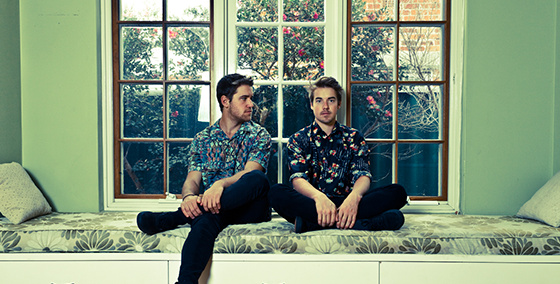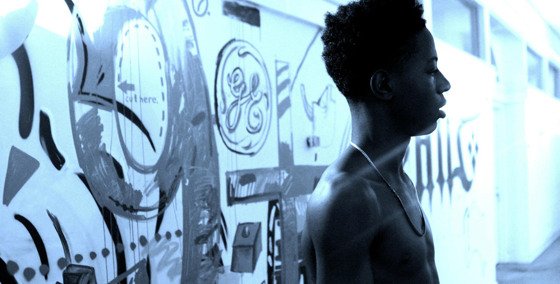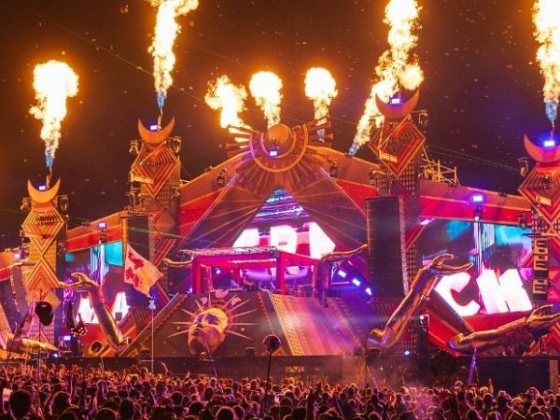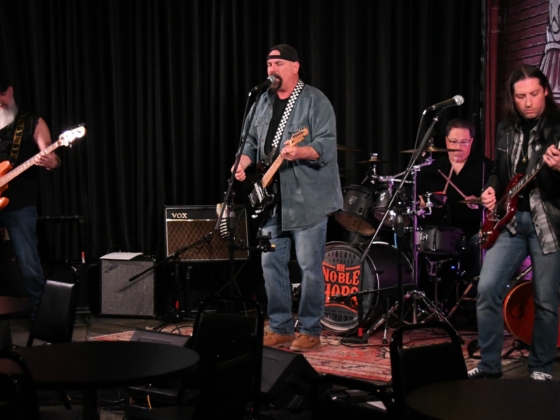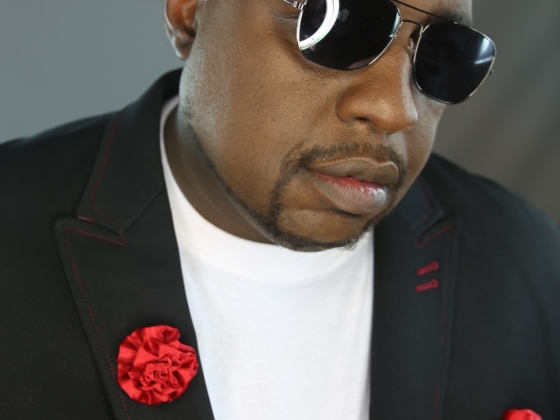Welcome back for this week's edition of Straight No Chase, your one-stop shop source for all things hip-hop here on EARMILK. This comprehensive weekly feature aims to share hip-hop based content we may have missed during the past week, while also highlighting memorable content we did cover. In addition to the recap of our best hip-hop posts, SNC also includes a Video of the Week, Project of the Week, and staff-selected noteworthy upcoming releases.
As any hip-hop head worth their salt knows, these days music floods the blogosphere by the millisecond. Consequently, the landscape of hip-hop is forever changing. There are countless rappers, both established and up-and-coming, as well as renowned and budding producers and beatsmiths dropping their fair share of dope music for the listening masses. It is our mission to mine the interweb for both audio and visual gems, delivering them straight to you for your auditory consumption. But enough with the jaw jacking: let's cut straight to the chase
STRAIGHT KILLER, NO FILLER
Yelawolf – “Light Switch” (Prod. DJ Paul)
It seems like only yesterday when Three 6 Mafia won the Oscar for their work in Hustle & Flow. Since then, Crunchy Black left the group and dropped a couple of albums, while Juicy J finished his dissertation on the effects of bandz and how they make women dance. That leaves DJ Paul, the widely known let underappreciated producer, left to go. But “Light Switch” is more than enough proof that he’s still got the chops to make it. Throw Alabamma emcee Yelawolf dropping some heavy bars coupled with a slick Muse sampled instrumental and you’ve got a bonafied banger just in time before the weekend.
[soundcloud url="https://api.soundcloud.com/tracks/116410822"]
The Alchemist – “Diagnosis” (Feat. Action Bronson)
Only The Alchemist could interweave a bunch of commercials and make it sound this good. With its various styles that prove his versatility when it comes to cooking up a beat, the 8-minute epic that is “Diagnosis” plays like an album sampler, jumping from guitar driven rock to sparse sounding drums in a fluent manner. But when Bronsolinni starts spitting some signature hilarious raps ( “I let my chicken go give her free range/ This is Jericho, no jerry curl/ put the pedal to the metal make the Chevy twirl) over piano prominent beat at the three and a half minute mark, you know it’s about to go down.
[soundcloud url="https://api.soundcloud.com/tracks/116800818"]
Ramaj Eroc- “Listen To Me”
Los Angeles rapper Ramaj Eroc came to my attention after his latest project, The Untitled EP, made its way to my mailbox, but those of you who partake in the antics of Kevin Hart might have heard “Mitches Do That”, which appeared on the Real Husbands of Hollywood True Music Soundtrack. Though lacking the 5’ 4” comedian this time around, “Listen To Me” makes up for the loss with a energetic piano beat-provided by Willie B of TDE fame-and some catchy lines from Eroc. Give the track a listen and be sure to get your hands on The Untitled EP before this kid blows up.
[soundcloud url="https://api.soundcloud.com/tracks/115331287"]
Archie Bang – “Apollo Creed”
Named after one of the greatest characters in cinematic history-if you haven’t seen the Rocky series, educate yourself- “Apollo Creed” is Archie Bang’s testament to his dedication towards hip hop. The genre and the sport of boxing share a lot of commonalities, and, as such, Bangz spares no details on the hardships that have defined his character. With a heavy dose of powerful bars and a guitar guided instrumental, “Apollo Creed” is the anthem for those willing to die for the cause.
[soundcloud url="https://api.soundcloud.com/tracks/115442422" width="100%" height="166" iframe="true" /]
Marco Polo – "Astonishing" (Feat. Large Professor, Inspectah Deck, O.C., Tragedy Khadafi & DJ Revolution)
Normally, I’d try and sell you on this joint, but just just take a moment and admire this masher of a posse cut. You’ve got the always nice Marco Polo, who made heads move with Newport Authority 2; the legendary Large Professor, one of game’s best producers; Inspectah Deck, one of the most underrated members of the Wu Tang Clan; O.C, the definitive mover and shaker in the underground world and former member of D.I.T.C; Tragedy Khadafi, the always smooth Queens emcee; and DJ Revolution, who’s visceral cuts give the track that gritty, seismic feeling. Do I need to say anything else?
[soundcloud url="https://api.soundcloud.com/tracks/116790028" width="100%" height="166" iframe="true" /]
SHIT! – “Tyler Perry’s SHIT!”
With an opening line like, “I tried committing suicide, listening to Macklemore/ I was too fat to hang from the chandelier,” SHIT!, the duo of Toronto’s D- Sisive and MMac, aren’t afraid to step on a few toes in order to get their point across. Though the track isn’t that much of a stretch from an Odd Future production-with its’ scant beat and dark-meets-humorous overtones, “Tyler Perry’s SHIT!” isn’t exactly esoteric conscious rap. Peep the track and look out for SHIT! Dream Beautiful, their upcoming project, which should be out pretty soon.
[soundcloud url="https://api.soundcloud.com/tracks/114332094"]
Syler – “The Funk”
Borrowing from Biggie seems to be an unstoppable cliché, but New York City’s Syler rises above the stereotypical trends and uses the quotable from “Machine Gun Funk” and in a fresh manner. With Confidence providing the beats and DJ Devastate on the wheels of steel, “The Funk” is a breezy and enjoyable joint fit for a weekend endeavor. The track will be featured on Slyer’s upcoming album, One Minute to Midnight, which will be out on November 19th.
[soundcloud url="https://api.soundcloud.com/tracks/114915839"]
ON THE ROCKS: WEEKLY RECAP
Here's a recap of some of the best hip-hop covered this past week on EARMILK. Take a couple of minutes to stroll down memory lane and revisit a few of tracks brought to you earlier in the week. For those who may have been snoozing at the wheel, here's your chance to play catch up:
[soundcloud url="https://api.soundcloud.com/tracks/116911475" width="100%" height="166" iframe="true" /]
[soundcloud url="https://api.soundcloud.com/tracks/116566572" width="100%" height="166" iframe="true" /]
VIDEO OF THE WEEK
Run The Jewels – "Get It"
Run The Jewels is every rap fanboy's dream. Legendary underground MCs Killer Mike and El-P are on different ends of the spectrum, yet their styles mesh effortlessly, and each rapper brings the best out of the other. The group's self-titled EP produced some of the best music of any genre this year, and we got the chance to revisit its splendor this week with the release of new visuals for "Get It". The video splices footage from the group's tour with snippets that showcase how much fun they're having. If you missed them on the road, consider this an opportunity to live vicariously through the thousands that didn't. Hopefully, if we're lucky, we'll get more music from rap the best duo in rap right now soon. Until then, relive their 2012 with our video of the week.
Get It from Run The Jewels on Myspace.
|OFFICIAL WEBSITE| KILLER MIKE on TWITTER | EL-P on TWITTER |
PROJECT OF THE WEEK
Black Scale is the leading street fashion brand that has captured the heart of artists and collectives like ASAP Mob, Danny Brown, and SpaceGhostPurrp. The fashion powerhouse has always collaborated music and style together and meshed in the gritty world of hip hop with the likes of high fashion. The 21st century is an entirely unique world, and this happens to be one of the many interesting things that have divulged from the clash of various cultures. In celebration of all of their success, the label has released a compilation of tracks that come together to symbolize their sound.
Kicking things off with A$AP Rocky’s “R. Cali” and swinging into motion with the likes of Yung Simmie, the well crafted mixtape is for your listening pleasure, and the ultimate kickoff to the great weekend ahead. The mixtape ends with an exclusive from Clams Casino and the whole A$AP Mob, so the energy was kept high throughout.
The mixtape is available for free via Datpiff.

UPCOMING RELEASES
Schoolboy Q's anticipated project Oxymoron has been delayed again due to sample clearance issues. Over the past few months the TDE rapper has said that his project is better than his star label mate Kendrick Lamar's. Yes saying that is just a ploy to have people buying the project but with the music School boy has been putting out you just never know. With songs like "Hell of a Night" and "Collard Green" featuring Kendrick, the Schoolboy may have something up his sleeve.

One of hip hops biggest heavy weights (no pun intended) is slated to release his next major album December 17. With stand out features through out the year including "FuckwitmeyouknowIgotit" on Jay-z's Magna Carter Holy Grail, we can expect Rick Ross to raise the bar again with tales of drug smuggling and the luxurious life he is now living. Leading his Mayback empire to new heights I can't wait to hear Master Mind.

Unlike the two widely known rappers previously mentioned this 19 year old has been putting in work since he was 13. Hailing from Toronto he has worked with a slew of artists including Mac Miller, Chuck Inglish, Bishop Nehru and more. Building the collective Bakers Club and constantly enhancing his sound and approach to his music. His next project titled Pablo Frescobar is set to release in the coming month and is said to have a few major features as well as production from Raz Fresco which has become the norm. Toronto is spawning new artists each day into the spotlight and Raz Fresco could be next.



